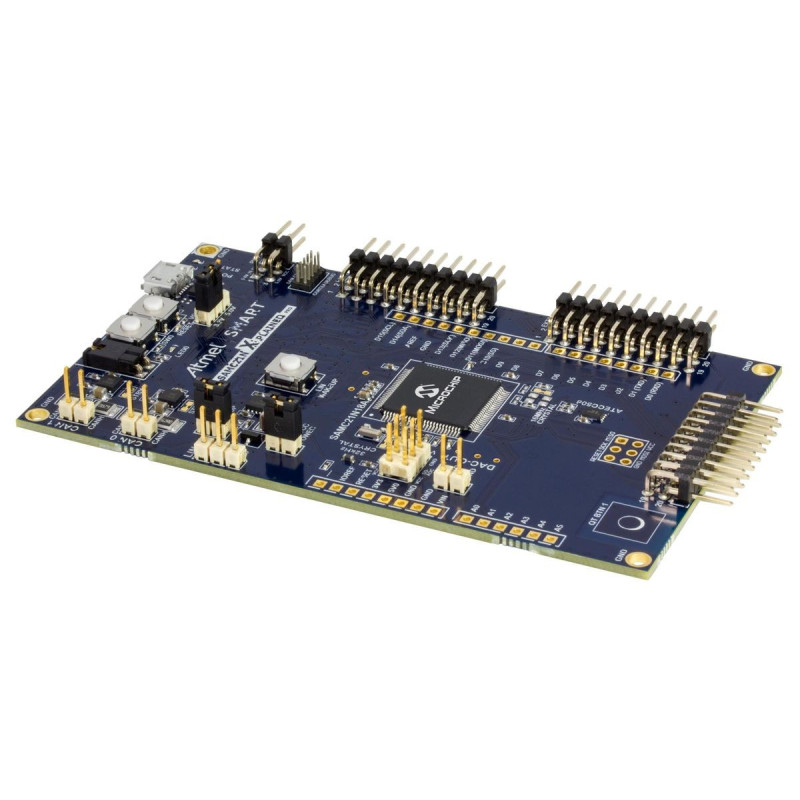



Microchip (ATSAMC21N-XPRO) Evaluation Kit, SAMC21N Xplained Pro MCU
Product Information Silicon Manufacturer: Microchip No. of Bits: 32bit Silicon Family Name: SAM C Core Architecture: ARM Core Sub-Architecture: Cortex-M0+ Silicon Core Number: ATSAMC21N18A Kit Contents: C21N Xplained Pro Development Board Product Range: - Product Overview The ATSAMC21N-XPRO from Microchip is a SAMC21N Xplained Pro evaluation kit. It is a hardware platform for evaluating ATSAMC21N18A microcontroller (MCU). The kit offers a set of features that enables ATSAMC21J18A user to get started with SAM C peripherals right away and to get an understanding of how to integrate the device in their own design. Supported by the Studio integrated development platform, the kit provides easy access to the features of ATSAMC21N18A and explains how to integrate the device into a custom design. The Xplained Pro MCU series evaluation kit includes an on-board embedded debugger, eliminating the need for external tools to program or debug the ATSAMC21N18A. The kit offers additional peripherals to extend the features of the board and ease development of custom designs. It features USB interface, auto-ID for board identification in Atmel Studio, one yellow status LED, one green board power LED and symbolic debug of complex data types including scope information. Two mechanical buttons (user and reset button), one QTouch® button, one yellow user LED Two selectable target voltages ( 3.3V and 5V), three Xplained Pro extension headers Level converters between target section and EDBG section Two CAN transceivers, 32.768KHz crystal mounted, 16MHz crystal footprint (not mounted) Programming and debugging of on-board SAMC21N through serial wire debug (SWD) LIN transceiver, wake-up button, alternate LIN power jumper DAC output connector Analogue voltage reference connector with filtered power supply (SDADC VREF, ADC/DAC VREF) Supported with application examples in Atmel Software Framework SPI, I2C, four GPIOs, virtual COM port (CDC) data gateway interface